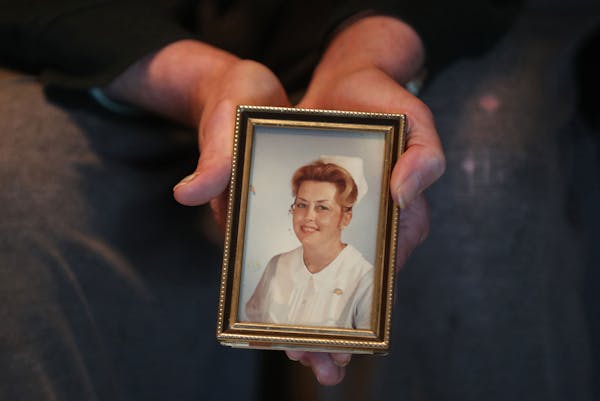Gov. Mark Dayton has called for a work group led by officials from Minnesota AARP to improve state oversight of Minnesota's senior care facilities, his second response to a Star Tribune series chronicling breakdowns in the state's handling of elder abuse allegations.
The new work group will develop recommendations designed to protect the rights of about 85,000 Minnesotans in state-licensed homes for seniors, including changes to state law that would reduce the secrecy that often surrounds state abuse investigations.
The work group has a deadline of Jan. 26, 2018, before the 2018 Legislature convenes in late February.
"I am deeply concerned by recent reports of maltreatment, neglect, and abuse taking place in those businesses, which families have entrusted for the care of their loved ones," Dayton said in a written statement. "I believe the perspectives of seniors and their families should be at the center of the discussions."
The decision to put Minnesota AARP, a consumer group, at the head of the work group signals that Dayton is prepared to go outside an inner circle of industry representatives and state regulators for reform ideas. The work group will engage other consumer-oriented organizations, including Mid-Minnesota Legal Aid, the Alzheimer's Association of Minnesota, the Minnesota Elder Justice Center and the grass-roots Elder Voice Family Advocates.
The announcement came just two days after U.S. Sen. Amy Klobuchar called on the U.S. Department of Health and Human Services, the federal agency that regulates nursing homes, to take more aggressive action against criminal elder abuse. Klobuchar also asked the Government Accountability Office to review federal nursing home regulations and recommend changes to federal law that would better protect senior citizens from violent crimes and other forms of abuse.
State Sen. Karin Housley, chairwoman of the Senate Aging and Long-Term Care Policy Committee, last week called the thousands of uninvestigated incidents "an emergency situation" and is preparing a package of reforms to improve investigations and increase disclosure for families.
More than 25,000 complaints
The five-part Star Tribune series, published in mid-November, detailed chronic failures by facilities and state regulators to investigate and prosecute incidents of criminal abuse in senior care homes.
The series found that hundreds of vulnerable residents at senior care centers across Minnesota are beaten, sexually assaulted or robbed each year. Yet the vast majority of these crimes are never resolved, and perpetrators are never punished, in part because the state agency overseeing these facilities lacks the staff and expertise to investigate the crimes.
Last year, the Minnesota Department of Health received 25,226 allegations of neglect, physical abuse, unexplained serious injuries, and thefts in state-licensed homes for seniors. While the department reviews each of these allegations, only 3 percent were investigated on site by the agency's inspectors.
The Star Tribune also found that, even in cases of serious abuse involving physical and sexual assaults, families are often told that the state investigations are confidential until completed. However, these investigations can drag on for months or even years, leaving families in the dark and unable to make informed decisions about care for their loved ones.
"There has been a state of neglect in our senior care facilities that has been going on much too long," said Jean Peters, vice president of Elder Voice Family Advocates, a group of Minnesota families seeking better care for seniors. "The neglect has been on many levels — neglect of facilities, neglect of funds, neglect of investigations. It isn't pretty but it's finally out in the open."
Dayton asked the new work group to recommend changes to state law to eliminate much of the secrecy surrounding state investigations, and to improve communication with families while investigations proceed. He also asked the group to determine if current regulations are "insufficient to deter potential abuse" and protect seniors and their families from retaliation by providers.
Last spring, Dayton worked with the Legislature to secure new funding and expanded staff at the Health Department to accelerate the handling of abuse allegations. With the new funding, the department plans to double the number of staff devoted to investigating and processing maltreatment complaints by 2021, officials said.
Chris Serres • 612-673-4308
Twitter: @chrisserres
DFL state senator charged with first-degree burglary in break-in at stepmother's home
![Vikings running back Dalvin Cook (33) watched during training camp Wednesday. ] ANTHONY SOUFFLE • anthony.souffle@startribune.com](https://arc.stimg.co/startribunemedia/ZHKH7NZVBNL2RFYGUCXADSN6IA.jpg?h=91&w=145&fit=crop&bg=999&crop=faces)
Former Viking Dalvin Cook, ex-girlfriend settle lawsuit for unspecified amount

